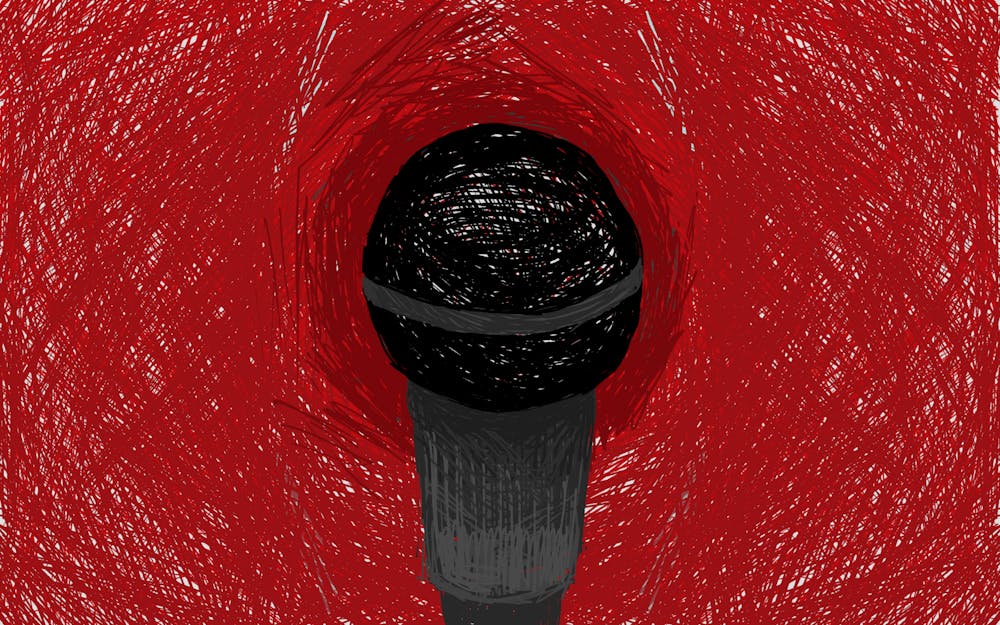
From high profile comedians to teens on TikTok, dark humor is a form of comedy utilized across all media platforms. It can bring people together to make light of an unfortunate situation and it can isolate those at the brunt end of the joke.
The idea of dark humor is controversial at its core, especially considering that its subjects are often disputed. The harsh and edgy jokes are meant to poke fun at otherwise not humorous situations.
In difficult times, laughter can provide physical benefits. According to Mayo Clinic, laughter can increase the amount of endorphins, which stimulate happiness. It can also promote the production of natural painkillers.
However, the line between a harmless joke and an insensitive comment can be blurred and sometimes nonexistent.
While scrolling through TikTok recently, I came across a comment from a user that said the video creator could be their “Anne Frank,” in a reference to the famous diarist who had to hide to escape persecution in Nazi-era Germany.
I was appalled by the joke itself, but I was almost equally appalled by the response. While the original comment got thousands of likes, the few replies calling it out for being derogatory got under a hundred each. Users responding with requests to remove the comment were left unanswered.
The commenter may or may not have meant to be offensive, but the result was nevertheless shocking. This example brings up a valuable message about the difference between utilizing dark humor and being blatantly disrespectful.
Before making a joke that can be considered harsh or potentially hurtful, it is important to consider a few things.
One of the biggest components of dark humor is the ability of the user to draw on personal experiences, especially difficult ones, to bring levity to it and connect with others that have similar experiences. Race- or gender-based jokes can be funny when made by a person within the demographic of which they are making fun.
When a joke is made at the expense of others, it crosses the line and becomes offensive. This includes using slurs to describe marginalized groups. When the use of a slur is the only punchline, it is best to rethink the joke.
A good way to judge whether a joke relies solely on insulting a group is whether or not the person would make the same comment in front of those they are describing. If there is any hesitance in whether one would want another to hear or see it, then the joke should not be made in the first place.
When making edgy commentary about a friend or family member, it is important to check with them first. Losing relationships is not worth a few laughs at the expense of a loved one.
An article by Harvard Business Review says that aside from hurting relationships, using inappropriate jokes can also make the person attempting to garner laughs look incompetent in professional settings.
Even with careful considerations, it is still possible to offhandedly make a comment that can cause harm. Being defensive when called out will not solve the problem and could cause an even greater disturbance.
Excusing a poorly-worded joke as “dark humor” does not change the fact that it can hurt someone’s feelings. Dismissing critics as “snowflakes” and belittling their feelings does not make one a comedian, but an obnoxious, inconsiderate person.
Taking constructive feedback and admitting to mistakes prevents insulting jokes from being made again. It also provides greater context the next time one thinks about making a dark joke.
When used thoughtfully and carefully, dark humor has the potential to bring together those who share similar traumas or dark experiences to aid in the healing process. But it is best to use this form of comedy with caution.
Like what you're reading? Support independent, award-winning college journalism on this site. Donate here.
September 09, 2020 at 04:53AM
https://ift.tt/35kjPeU
COLUMN: Offensive jokes are not just 'dark humor' - Indiana Daily Student
https://ift.tt/2BsGM2G
Joke



No comments:
Post a Comment